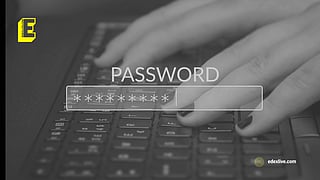
Last week, the internet witnessed a digital disaster: a global leak of 16 billion passwords, or as we better understand it in India — 1,600 crore login credentials — surfaced on the dark web. This leak, revealed through cybersecurity watchdogs and verified by Google, is being described as the largest breach of its kind.
And yet, many of us continue to act as if it doesn’t concern us.
The truth? If you’ve used the same password across multiple sites, logged in from a public café Wi-Fi, or ignored a “suspicious login attempt” notification — you’re already at risk.
As someone who coaches individuals and businesses on how to use AI and digital tools securely and efficiently, I see this pattern every day:
Easy-to-guess passwords like 123456, iloveyou, or Telangana@123 , Your Name or Date of Birth Combinations, etc.
One password used across email, banking, and social media.
OTPs blindly shared with strangers pretending to be customer care.
We live in a country with over 850 million internet users, and yet cybersecurity literacy is dangerously low. In the Artificial Intelligence (AI) age, where our identities, bank accounts, documents, and memories are stored online, our digital behaviour hasn’t evolved fast enough to protect them.
Let’s say your Gmail password is leaked. That alone can give hackers access to:
Your Google Drive (photos, documents, personal files)
Linked social media accounts
Password reset options for banking apps
Access to OTPs via email
And in some cases, even your Aadhaar or PAN-linked documents
In seconds, all personal information integral to your life can be compromised.
Here are nine steps every Indian internet user must implement immediately:
Use strong, unique passwords for each platform. Avoid names, dates, or repeated sequences.
Enable 2-Step Verification (2FA) for email, social media, and banking apps.
Install a password manager like Google Password Manager, Bitwarden, or 1Password to store and autofill passwords securely.
Check if your email or credentials were leaked using Google Password Checkup or haveibeenpwned.com.
Avoid clicking suspicious links from unknown sources or social media DMs.
Do not use public Wi-Fi to access sensitive accounts unless protected by a VPN.
Keep your devices updated with the latest security patches.
Set login alerts on your Google account and banking apps to stay informed.
Educate your family and team — cybersecurity isn’t just personal, it’s collective.
Artificial intelligence is transforming the way we live and work — but it's also giving rise to AI-powered cyber threats like deepfakes, phishing bots, and auto-cracking algorithms. The same tools we use to make life easier can be turned against us if we’re careless.
It’s not just about passwords anymore — it’s about digital behaviour, awareness, and habits.
Let’s stop assuming we are “too small” to be hacked. Hackers don’t need to target you specifically. They just need a door left open — and in many cases, that door is a weak password.
The recent leak is a wake-up call for India to get serious about digital hygiene. Password safety is not a tech issue — it’s a life skill. Whether you’re a student, a homemaker, or a CEO, your password is your passport in the digital world.
(Nikeelu Gunda is an AI Trainer, Digital Marketing Coach, and Founder of Digital Connect. He has trained over 1,00,000 individuals in AI tools, digital branding, and business growth. Views expressed are his own.)
